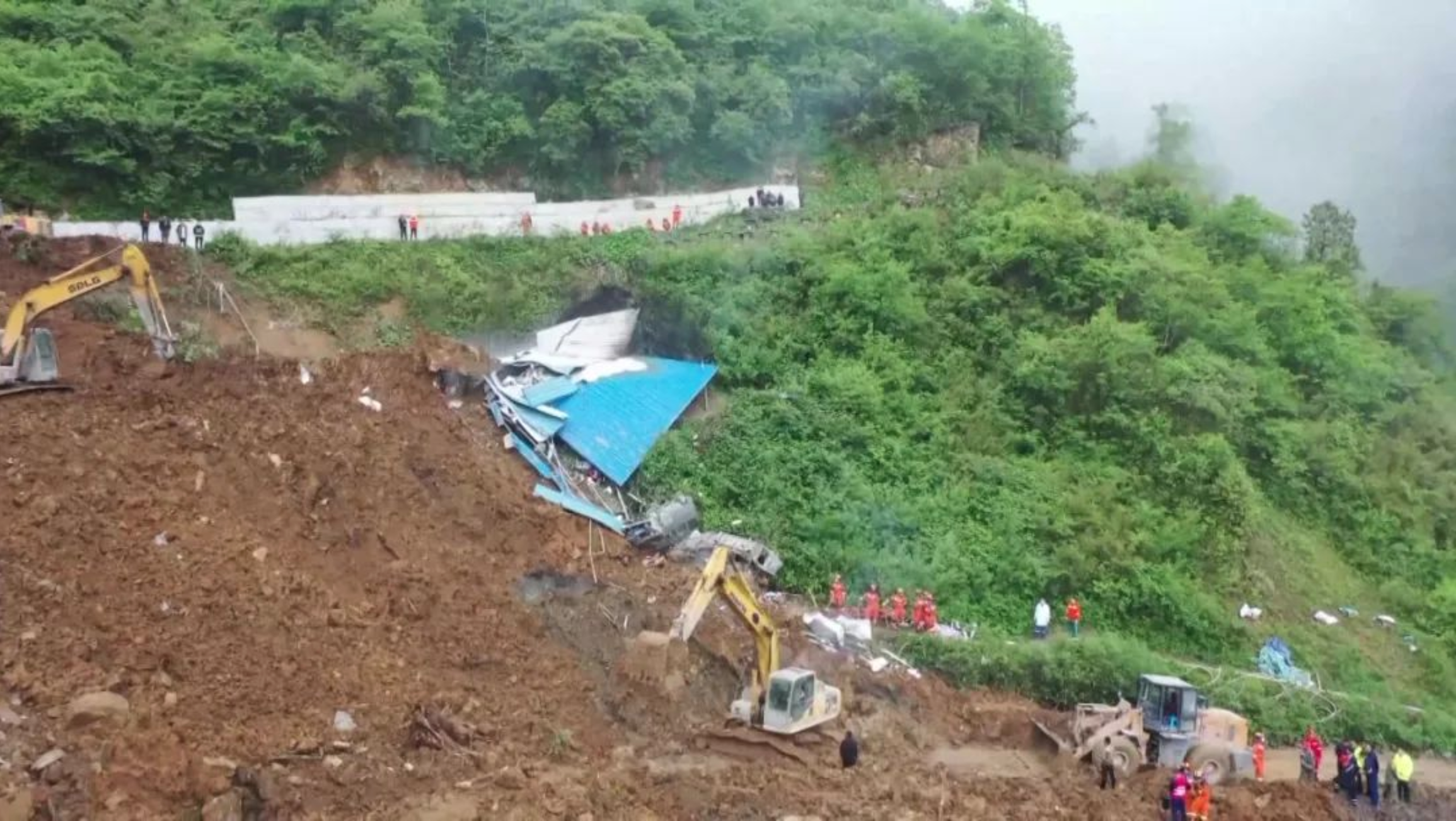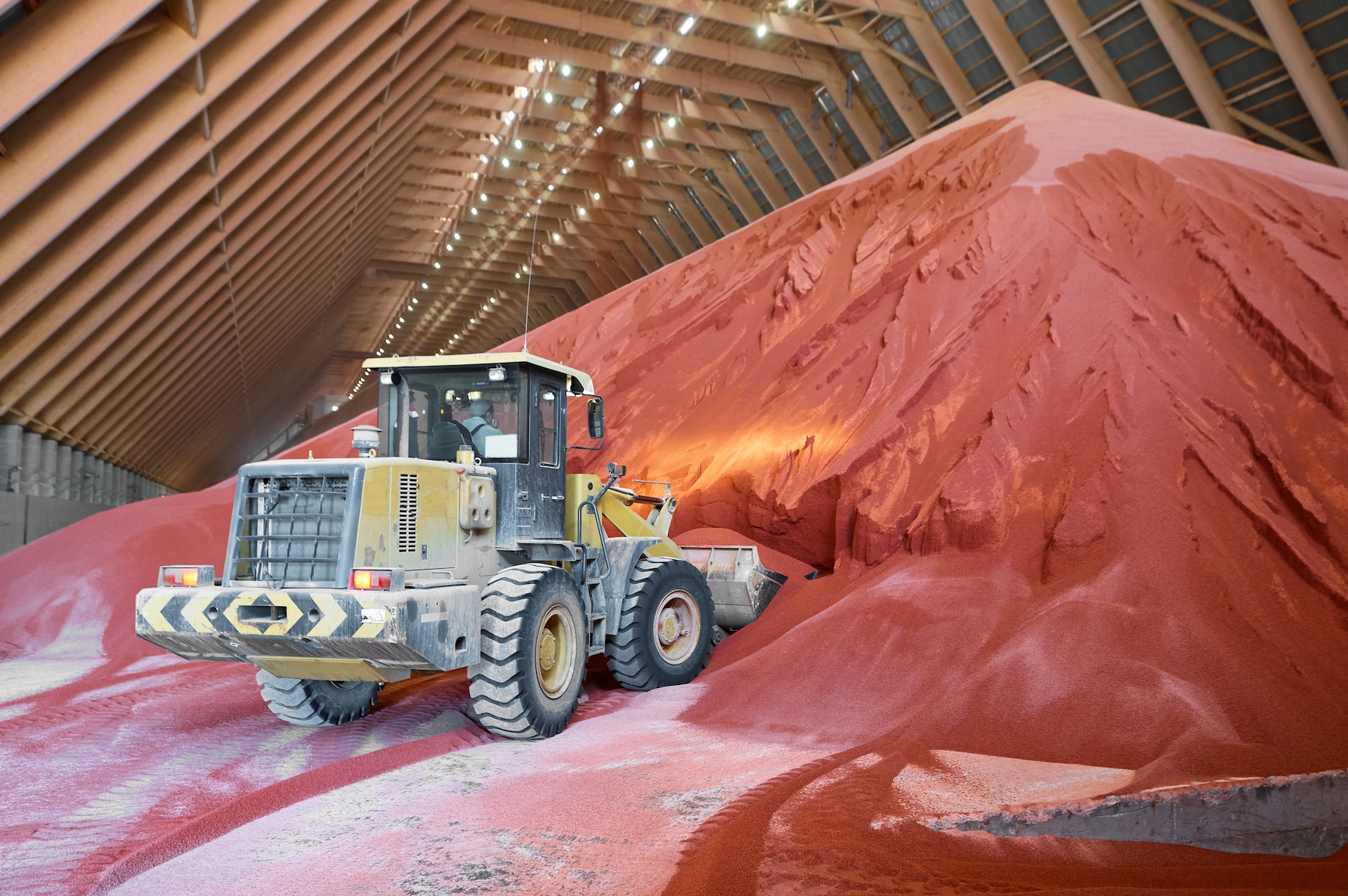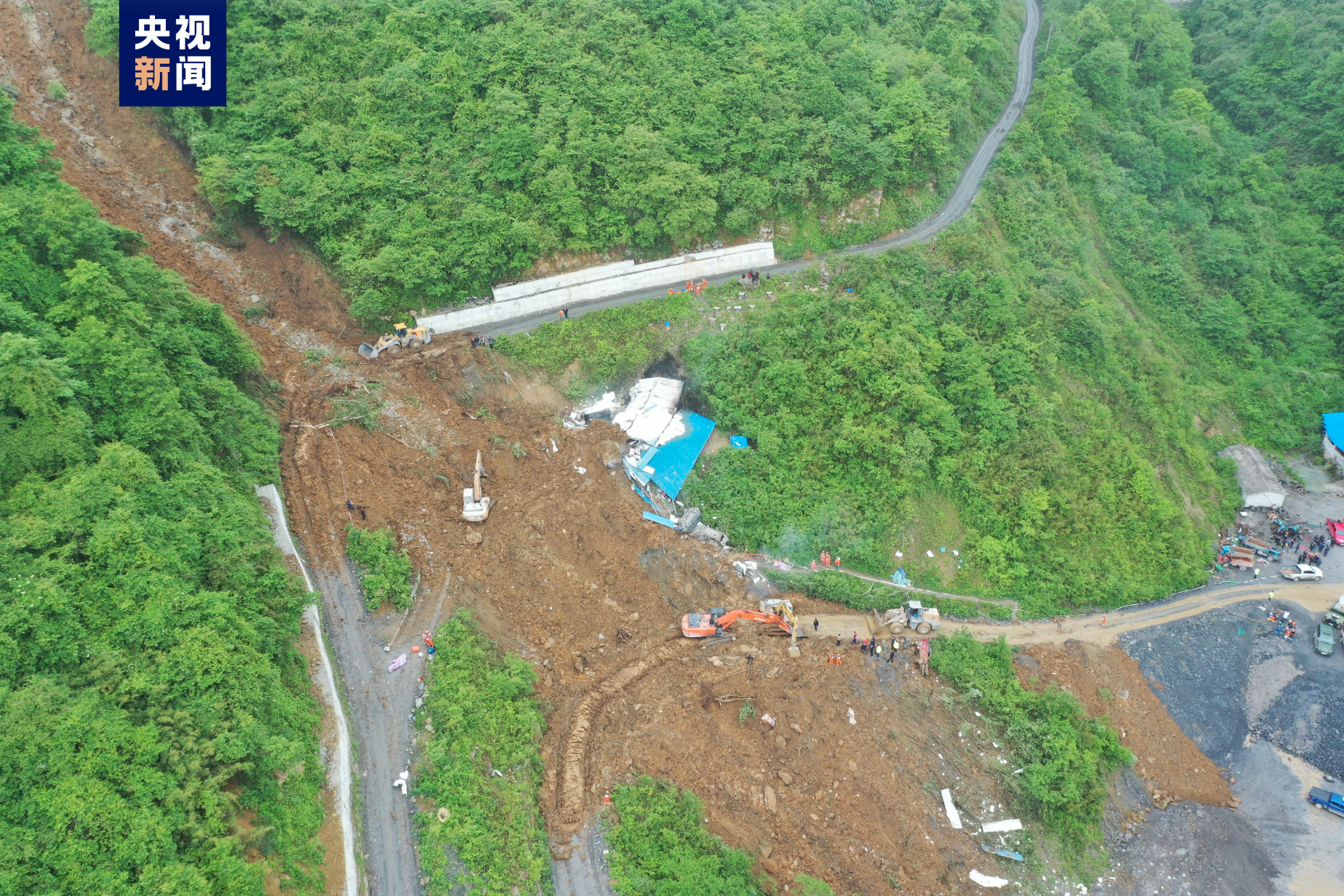- Workers vulnerable to poverty are going to work in the phosphate mines in Leshan, Sichuan province, often bringing families and fellow villagers to work with them.
- The 4 June landslide that killed 19 workers at the Leshan Tuoda Mining Company deeply affected rural families, and they are searching for answers about the safety measures taken at the work site.
- Phosphates are used in batteries for new energy vehicles, and Leshan is a major phosphate-producing region in China.
On 4 June, an early morning landslide on a mountain in Leshan, Sichuan province, took the lives of 19 workers and injured seven others. The workers were hired by Leshan Tuoda Mining Company, Ltd. (乐山拓达矿业有限公司), which mines phosphate. Workers were housed in rudimentary facilities near the worksite, and the landslide took out the shed where they slept.
Leshan is one of the major phosphate-producing regions in China. Rapid development of new energy vehicles in China has led to rising demand for lithium iron phosphate batteries, and thus the phosphate mined in Leshan. The Leshan Tuoda Mining Company was registered in 2015, with an investment of 10 million yuan. It started to produce phosphate around 2016 and was praised by the Leshan government for bringing in tax revenue and increasing local employment opportunities.

Photograph: Chintung Lee / Shutterstock.com
The company’s spokesperson claimed the accident was a “natural disaster,” unrelated to the mining production safety. But this distinction is unhelpful when it comes to root issues of worker safety. Miners and their families immediately questioned the cause of the landslide, wondering if more could have been done to save the workers’ lives. Although an official designation of the incident as a natural disaster would likely not have an effect on accident compensation for the injured workers and the families of the deceased miners, the question is important from a truth and accountability standpoint on the path toward justice.
As June is China’s annual Workplace Safety Month, the Leshan mine incident is one of many that highlights why China Labour Bulletin collects and analyses data on workplace accidents across China in our Accident Map. Increased transparency on the industrial and regional patterns of workplace accidents reveals that much more could be done to prevent injuries and deaths of workers, and workers on the frontlines should be involved in raising alarm bells and alerting the union of unsafe working conditions at their workplaces. Further, as climate change and economic and industrial change have social impacts, workers’ lives should be better protected no matter the official cause of the accident.
Workers had concerns about slag dumping and a newly-opened mine in close proximity to their shed
Workers on the frontlines of production are in the best position to understand safety risks in their workplaces and to raise concerns. A comment on social media alleged that Leshan Tuoda workers had warned the boss of the danger of slag dumping near the workers’ living facility, but the boss did not take action.
A miner who gave the pseudonym of Lejun was off duty on the day of the accident. In an interview with Sanlian Lifeweek, he said a new mine was opened a week prior at the spot where the collapse started. To speed up production, the mine was in operation around the clock, and blasting in the mine often shook the shed where miners were housed.

A video still of the rescue effort at the Leshan mining accident on 4 June 2023. Photograph: State media
Lejun described how large amounts of slag were dumped in a ditch between the living area and the new mine, saying that recent rain loosened the soil. With the repeated blasting, the ditch could not hold up the slag, he said:
The slag pressured the ditch and caused the landslide.
According to a publication by an outlet of Beijing Youth Daily, another miner who gave the pseudonym Lihua described the location of the slag. Lihua said:
The slag piled on the top of the mountain is at the back and upper part of the work shed, very close to the work shed… which is unreasonable in and of itself.
Lihua added that a small reservoir was built behind the shed to provide water for the workers, and running water could also loosen the slag.
A safety expert interviewed by Sanlian Lifeweek said risk factors for landslides include rain, overloading, and geographical structure. Loading slag on a slope could weaken its stability and cause landslides. The expert added that in hilly areas such as Sichuan, there are often cases of illegal mining and slag dumping, which cause mudslides and landslides under heavy rain.
Economically vulnerable villagers took on unsafe jobs to support their families
The aforementioned outlet of Beijing Youth Daily reported that 18 of the 19 deceased workers are male miners aged between 30 and 40. The other deceased worker was a 50-year-old female cook.
Because of labour patterns in the industry and the region, some families lost multiple members at once in the Leshan accident. The miners come from nearby villages and counties in Sichuan, and they often bring their relatives to work in the mine together.
A villager said that men who cannot find decent jobs elsewhere will go work in the mine. Other than mining work, villagers also take up other types of jobs in the mining industry chain, such as truck drivers who transport the phosphate to chemical plants in Leshan and Chengdu.

Photograph: Nordroden / Shutterstock.com
One of the deceased miners is Wang Mao. His relative described how Wang had faced difficulties supporting his family and two children, who are in secondary and primary school, respectively.
First, Wang was a food delivery worker for two to three years, at the same time driving a tractor to make ends meet. To earn a better standard of living, Wang joined an online ride-hailing platform last year as a driver. He borrowed more than 100,000 yuan to buy a vehicle that met the platform's requirements. However, only one month later, the platform was closed for not following the procedures required by the government.
It was at this point that Wang went to work in the phosphate mine in Leshan, along with three others from the same village. Wang’s family had reservations about this work, saying:
Earning money in the mine is not easy. It is very dangerous.
But Wang persisted. The miners were promised 500-600 yuan per day working in the mines. But at the time of his death, Wang had worked in the mine for several months, yet had only been paid once.
Administrative safety regulations and enforcement fail to protect workers’ lives
According to The Paper, the local safety bureau affiliated with the Ministry of Emergency Management (MEM) had inspected several mining companies in May this year, including the Leshan Tuoda Mining Company.
The first official announcement on the Leshan accident, which has since been scrubbed from the internet, did not mention the mining company at all. Instead, it referenced a “high-level mountain collapse,” which is an official designation of a high-speed and deadly landslide. The Leshan Tuoda Mining Company pointed to the incident as a “natural disaster,” having nothing to do with the mining production.
Although the region is mountainous and prone to smaller landslides and flooding - see a 2020 CLB union investigation into a chemical gas leak in Leshan caused by floods - a high-level mountain collapse is unusual. Therefore, miners and their families questioned the reason for this sudden tragedy, and they suspect that the newly-opened mine and unsafe disposal of slag resulted in the landslide.

A video still of the scene of the Leshan mining accident on 4 June 2023. Photograph: State media
In the eight years of the mine’s operations, the company has some marks on its record, including wage arrears. More relevant to safety, the company just this past March was found to be using “unauthorised and unqualified equipment” and was fined just 10,000 yuan.
In May 2023, the local MEM bureau found some unsafe conditions and announced that the company should begin 24-hour monitoring during flood season, conduct strict safety checks and correct issues according to mining regulations, and implement smooth communication in the event of any emergency.
2014 State Council regulations on preventing accidents in non-coal mines specify that mines located in mountainous regions with a likelihood for landslides have an obligation to take steps to strengthen inspection of hazards on the slopes.
After the accident, local regulations required suspension of all production for three months for investigation, reconstruction and recovery. The official announcement did not mention whether the company will be held responsible for the accident.
Workers need representation for their workplace safety concerns
Official data indicates that in 2022 alone, there were 367 mining accidents in China resulting in 518 deaths, of which 199 accidents were non-coal mining, accounting for over half of the total. The numerous State Council and local government regulations on mining safety, including in Leshan specifically, have not prevented accidents. One-off inspections from the MEM are also not capable of preventing workplace accidents, and small penalties on companies also have little deterrent effect.
The Leshan accident is still under investigation, and it is unclear if the investigation will be meaningful and uncover the actual circumstances that led to the landslide and loss of life. The company’s lack of safety precautions may have contributed, and workers’ expressed concerns were not enough to convince the company to change its practices. Vulnerable workers also likely cannot afford to quit when they are unsafe at work. Their families are left seeking answers that may never come.
The work safety administration system has an important role to play, but infrequent investigations are not enough. One solution is that China’s official trade union has the resources and the legal mandate to represent workers on the frontline of production. The union is a prime channel to implement proper mechanisms for workers to voice their work safety concerns. With or without the union, workers should be empowered to monitor and report unsafe work conditions and be assured that their lives and jobs will be protected for performing this essential and lifesaving role.
Further CLB reading:
- Construction workers dead, missing in Sichuan mudslide despite disaster warning (October 2021)
- What You Need to Know About Workers in China: Work Safety (September 2021)
- Coal mine collapse in Inner Mongolia kills five, injures six, and leaves dozens missing (February 2023)
